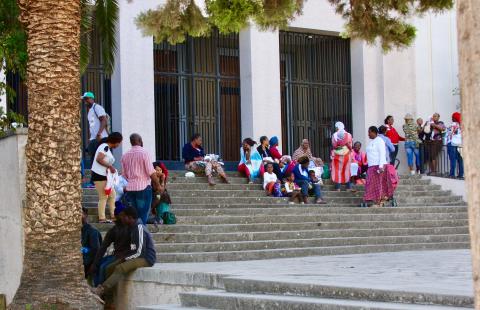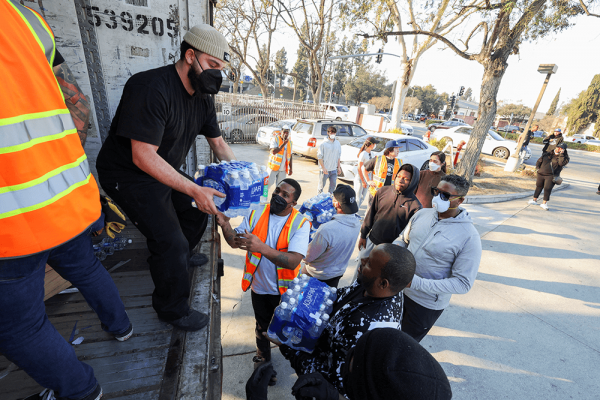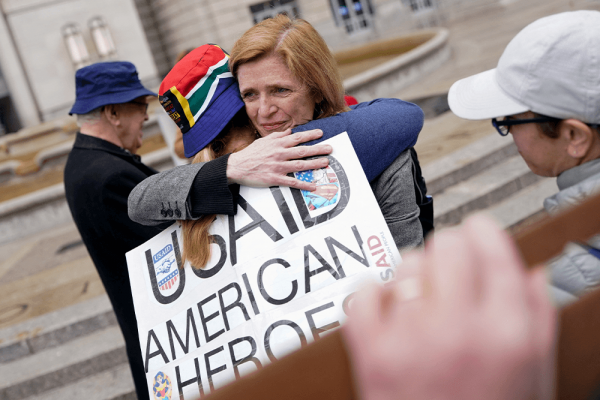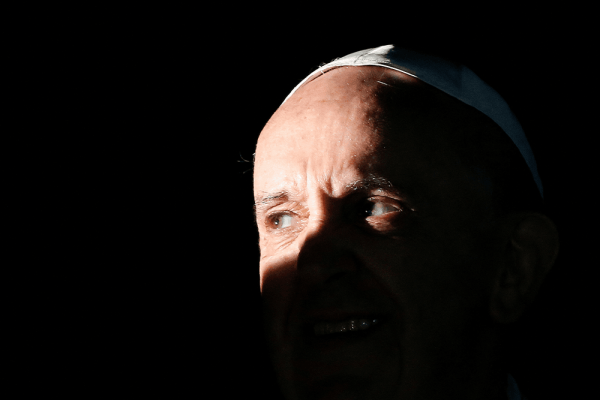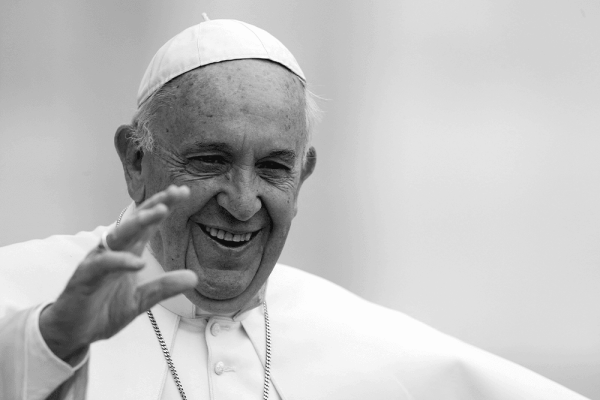Mariette Loure shielded her 7-month-old son from the bright sun in a swaddle of blankets. They sat on the cement steps of Tangier’s impressive Spanish Catholic Cathedral overlooking the expansive coastline of Northern Africa.
Ten months had passed since she had arrived in Morocco after a harrowing overland journey from her home country of Cameroon. Like so many migrants before her, Loure hoped to cross the narrow 14+ kilometer Gibraltar Strait between Spain and Tangier and make a new life for herself and her son in Europe.
However, Loure has found a different reality. Work is scarce and her days in Tangier are filled with violence — often migrants are victims of police beatings — and Loure spends many nights sleeping in the forests outside of the city. Other nights she sleeps on the floor of friend’s apartments, but she doesn’t have a stable place for and her son to live.
Through the grapevine, Loure heard if she waited alongside hundreds of other migrants during the day at the Catedral de Tánger, a Catholic church maintained by the dioceses, she would be safe. Every morning when the church’s gates swing open, in floods 25 to 50 migrants, most of whom are fleeing humanitarian crises in Cameroon, Senegal, Mali, and the Ivory Coast. At night the migrants sleep in the forests or outskirts of Tangier, but as soon as dawn breaks, they arise and head to the church.
From a suite of offices in the church basement, the Delegation Diocesaine des Migrations (DDM) provides food, used clothing assistance, and other items for the people waiting, says project director Zineb Kamal. While waiting for this aid, the migrants create their own informal networks of news, information, and assistance to guide each other during their perilous journeys.
- - -
In the past year, Morocco — and particularly Tangier, with its large port and proximity to Spain — has become ground zero for migrants trying to cross into Europe. After a costly and violent crackdown on Libya’s borders, migrants streamed into Morocco, and about half of the 115,000 people who made it into Europe travelled through Spain, according to the International Organization for Migration.
Morocco, which has a long-running reputation of tolerance, has experienced enormous economic and social strain from absorbing the new population. There have been steady media reports of migrants climbing fences in the Spanish border enclaves of Ceuta and Melilla. As recently as September, 150 migrants scaled the fence, exacerbating the tensions between Morocco and Spain.
The European Union has pressured Morocco to curb migration in recent years. Since 2014, they have committed to disbursing €232 million for migration-related support. But as funding has increased, so has the violence of law enforcement. Five of the migrants I spoke to referenced personally experiencing police brutality.
A 2019 IOM study found that nearly half of migrants that arrived in Morocco experienced violence, robbery, sexual assault, or being held against one’s will. Still, since the influx of funds into Morocco, migration has halved, according to an European Union report, increasing the likelihood that this severe enforcement will continue.
“Law enforcement officers need training to improve their work with migrants,” says Ali Zoubeidi, a researcherat the Universite Hassan I in Settat, Morocco, who has studied police brutality cases.
Stories of police beatings and migrants being rounded up and dropped in the Sahara Desert close to the Algerian border abound in the news. AlarmPhone, an advocacy organization founded in 2014, provides a distress hotline for refugees, and began to document security incidents. In May and April of 2018, Morocco-based advocates photographed violent interactions with Tangier’s police.
Khady Ciss, 26, arrived in Tangier from Senegal six years ago, and has legal documents to live in Morocco. She was picked up by police, she says, while she was doing errands not far from her apartment, and was not released for hours. While in her jail cell, she took photos with her cell phone that depict her fresh bruises.
“The streets are not safe for migrants,” says Ciss. “Police will harass them even if they have papers.”
- - -
In March 2019, Pope Francis visited Rabat, Morocco’s capital, to make a speech about the migrant’s plight worldwide. There, Pope Francis met with Muslim and Catholic leaders in the moderate Islamic country to call for protections for migrants, while also asking for incoming refugees to respect the laws and culture of their host country.
With Morocco’s King Mohammed VI by his side, Pope Francis delivered a speech to advocates and social service agents, saying, “Protection must first and foremost be ensured along migration routes, which, sadly, are often theaters of violence, exploitation, and abuse of all kinds.” He added: “We know that it is not easy — for those who arrive and for those who receive them.”
But at the church, hundreds of migrants sit peacefully on the steps, knowing at least for today, they don’t have to worry about being harassed as they think about their next steps.
In Morocco, which is an Islamic-state, church services are often populated by foreigners or travelers passing through. Historically the church has always been known as a stopping-point along this well-trodden route. Many of the migrants in Morocco are devout Christians from Sub-Saharan Africa.
Loure’s faith has saved her throughout her harrowing journey. She was six months pregnant when she walked alone from her country until she reached Morocco, and now she doesn’t know what to do next.
“I am so scared,” she said. “I don’t even have milk for my baby. I don’t eat enough, but I can’t go back to Cameroon. There is no safety there either.”
She left her two older children behind in Cameroon, where she worked as a graphic designer, when the police burst into her neighborhood indiscriminately killing people.
“I don’t know where my babies are, or even if they are alive,” said 37-year-old Loure quietly, bouncing her child on her knee to calm him.
She has no money, no resources, and no idea how to reach Europe, but she’s convinced that the friendships she’s made through visiting the church will carry her through. The church is more than just a safe shelter for the migrants adrift in dangerous conditions — the connections they have forged on the steps of the Catholic church provide what they’ve missed the most: a sense of home.
Albufiah, who has been in Tangier for four years, teaches dance in his free time, but still comes to meet friends at the church. From this network, he gathers information about access to work, possibilities to cross the ocean, and ways to survive on the streets of the bustling city. He passes on what he has learned to newcomers.
Sylvie, who didn’t want to give her last name, has slept in the forest for the past three months, and has bruises dotting her elbows. She says she comes to the church daily to get food and news from fellow Cameroon compatriots.
“I would be alone in the world if I didn’t have the church to come to."
Got something to say about what you're reading? We value your feedback!


